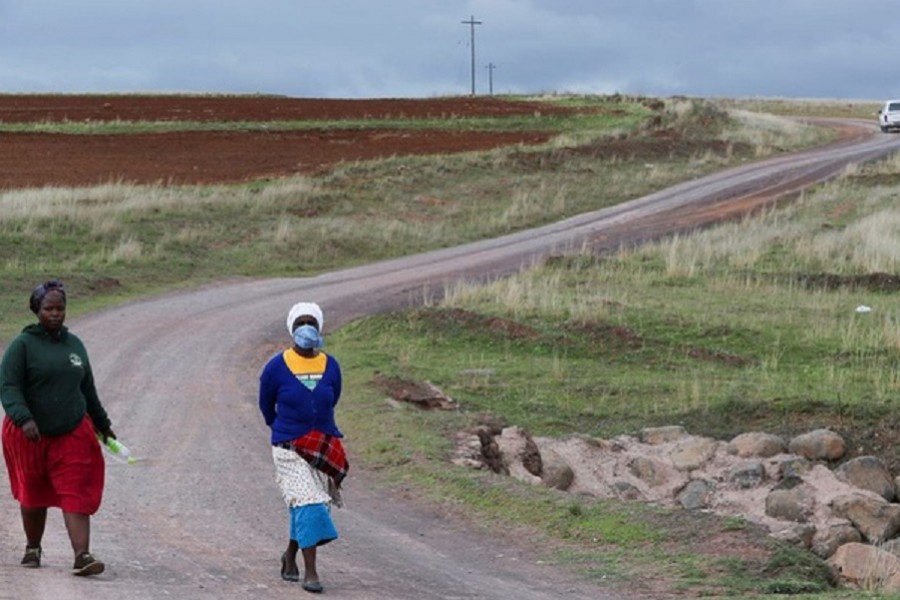South Africa is seeing an increase in COVID-19 reinfections due to the omicron variant but symptoms for reinfected patients and those infected after vaccination appear to be mild, a scientist studying the outbreak of the new strain said.
The new variant, which has caused global fears of a surge in infections, was first detected in southern Africa and is fast overtaking delta to become the dominant variant in South Africa, where case numbers are rising dramatically.
"Previous infection used to protect against delta but now with omicron that doesn't seem to be the case," said Anne von Gottberg, microbiologist at South Africa's National Institute for Communicable Diseases.
She told an online news conference hosted by the World Health Organisation (WHO) that she and her colleagues believed reinfections with Omicron and breakthrough infections in vaccinated patients would feature less severe symptoms.
Von Gottberg said the travel bans imposed by many countries on passengers from South Africa were having a negative impact on the logistics of scientific research into Omicron.
"There are fewer flights to choose from to bring in reagents, to bring in equipment, in addition to send out specimens and isolates for people to be able to then work with omicron," she said.
Isolates are cultures of micro-organisms isolated for study, reports Reuters.
African leaders have complained about the travel restrictions, saying their countries were being penalised for their transparency in reporting data on the new variant.
More than 50 per cent of African nations can now do the genomic sequencing to identify the variant, the WHO said, and those that cannot are partnered with nations that can.
WHO officials told the same event COVID-19 vaccination was improving in Africa, with five countries including South Africa now having vaccinated more than 40 per cent of their populations, although coverage remained low elsewhere.
At a separate online news conference, the head of the Africa Centres for Disease Control, Dr John Nkengasong, said supplies of vaccines to the continent had improved.
"Vaccines are beginning to flow to the continent in a very predictable and steady manner," he said, adding that the challenge now was to ensure those supplies were actually used, in a context where vaccine hesitancy remains high.
"The uptake is not as we would have loved to see," he said.
Some African countries had delayed the deliveries of vaccines, including those of doses provided under the African Union's African Vaccine Acquisition Task Team, he said.


